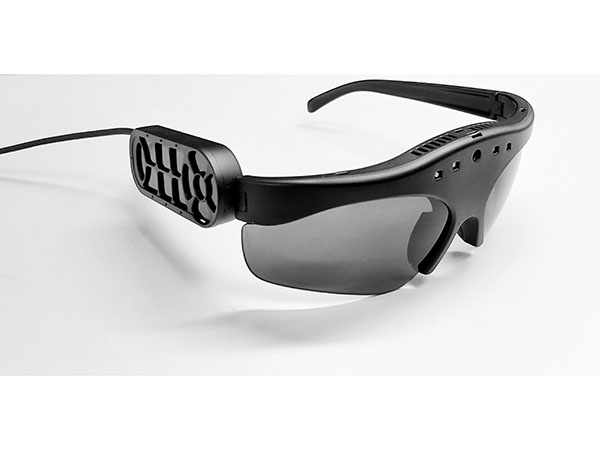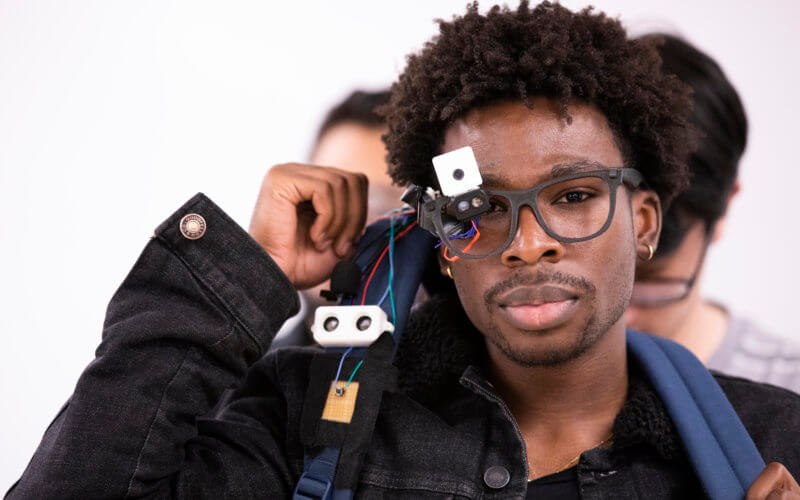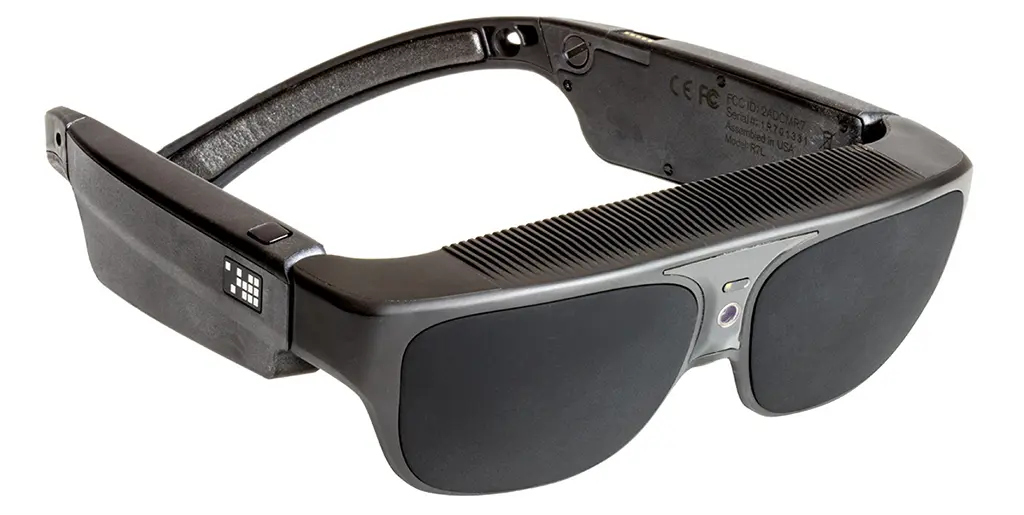Discover Advanced Assistive Gadgets for People With Aesthetic Disabilities
The landscape of assistive innovation for individuals with visual impairments is developing swiftly, providing a variety of ingenious gadgets that enhance freedom and involvement. From clever glasses that seamlessly combine aesthetic input with acoustic support to sophisticated navigation applications that redefine spatial recognition, these devices are reshaping possibilities.
Smart Glasses Innovations
Smart glasses represent a considerable advancement in assistive modern technology for people with visual disabilities. These ingenious devices integrate numerous attributes created to enhance the individual's interaction with their atmosphere. Outfitted with video cameras and sensors, wise glasses can record real-time visual details, which is after that processed and communicated to the user with audio feedback or haptic experiences. This capability allows people to receive prompt descriptions of their environments, improving their capability to browse and engage with the world.
Additionally, developments in expert system have further improved the abilities of clever glasses. Artificial intelligence formulas can identify faces, read message, and identify objects, making them indispensable tools for everyday jobs. Users can get acoustic signs that offer context regarding their setting, cultivating freedom and confidence.
Additionally, the ergonomic layout and light-weight nature of many wise glasses make them appropriate for prolonged usage, guaranteeing comfort while boosting functionality. As these gadgets remain to develop, they hold the potential to change the method people with visual disabilities experience their daily lives, bridging the void in between availability and technology. The ongoing r & d in this area guarantee to expand the opportunities for smart glasses, making them a necessary part of modern assistive devices.
Navigation Apps and Tools
Countless navigation applications and devices have actually become necessary resources for individuals with aesthetic disabilities, significantly boosting their capability to pass through unknown environments. These innovations leverage GPS performance, audio signs, and real-time information to give users with specific navigating help.
One famous instance is the Aira application, which connects users to trained agents that can offer visual descriptions of environments and navigation advice with a real-time video feed. This service improves the customer's spatial awareness and confidence while browsing. An additional noteworthy device is Seeing Eye GPS, which uses voice-guided navigating and sights, allowing customers to gain access to important information regarding their surroundings.

As modern technology remains to advance, the development of more innovative navigating devices assures to more equip individuals with visual problems, promoting smooth wheelchair and combination into diverse environments. Such technologies contribute in advertising an extra inclusive culture.
Braille Modern Technology Improvements
In recent years, improvements in Braille technology have substantially changed just how individuals with visual impairments gain access to info and involve with the globe around them. The growth of mobile Braille display screens has revolutionized reading by enabling users to connect wirelessly to computers, tablets, and mobile phones. These gadgets convert text into Braille in real-time, enabling smooth communication with electronic material.
Additionally, cutting-edge Braille printers have actually emerged, enhancing the manufacturing of responsive products. Modern embossers are quicker and much more efficient, permitting the rapid development of Braille records and instructional materials. This effectiveness decreases the moment and cost connected with producing Braille resources, making them extra available to institutions and companies.
Additionally, the combination of Braille with various other innovations, such as man-made intelligence and artificial intelligence, has opened up new opportunities for personalized learning experiences. Voice acknowledgment and synthesis technologies can enhance Braille, supplying an inclusive strategy to info dissemination.
As the need for comprehensive education and office atmospheres expands, these technological developments play an important role in equipping individuals with aesthetic problems, ensuring they have equivalent access to info and possibilities in various elements of life.
Wearable Devices for Independence
A growing selection of wearable gadgets is improving independence for people with visual disabilities, offering ingenious remedies that improve navigating and day-to-day living. Braille displays and notetakers. These devices use innovative innovations to give real-time feedback and support, advertising autonomy in various atmospheres

Wearable innovation additionally includes smartwatches that can be set with Mobility aids for visually impaired users accessibility features, making it possible for users to receive alerts, track their areas, and even require support with the touch of a button. Moreover, some tools include man-made intelligence to evaluate the environment, offering sound descriptions of nearby things or individuals.
Voice-Activated Assistive Solutions
Leveraging voice-activated assistive solutions has actually transformed the landscape of assistance for individuals with visual problems, offering hands-free interaction and accessibility to a variety of jobs. These innovations utilize all-natural language processing and expert system to enable individuals to perform day-to-day activities via easy voice commands.

Moreover, recent improvements in voice acknowledgment accuracy have enhanced the customer experience significantly, accommodating diverse accents and speech patterns. This inclusivity makes sure that even more individuals can take advantage of these innovations, cultivating a higher sense of freedom.
Verdict
In conclusion, the development of advanced assistive devices dramatically boosts the self-reliance and top quality of life for people with visual impairments. Developments such as wise glasses, navigation apps, Braille modern technology, wearable tools, and voice-activated remedies jointly cultivate an even more comprehensive environment. These innovations equip individuals to navigate their surroundings with confidence and involve more fully with the globe, inevitably advertising higher availability and level playing fields for people encountering visual challenges.
The landscape of assistive innovation for individuals with aesthetic disabilities is progressing quickly, presenting a range of cutting-edge tools that improve autonomy and engagement.Smart glasses stand for a considerable improvement in assistive innovation for individuals with aesthetic disabilities. As these devices proceed to progress, they hold the potential to change the means individuals with visual problems experience their day-to-day lives, connecting the void between accessibility and modern technology.In recent years, advancements in Braille modern technology have significantly changed exactly how people with visual problems gain access to information and involve with the world around them. These modern technologies empower customers to navigate their environments with self-confidence and involve more totally with the world, inevitably promoting better ease of access and equivalent opportunities for individuals facing visual challenges.